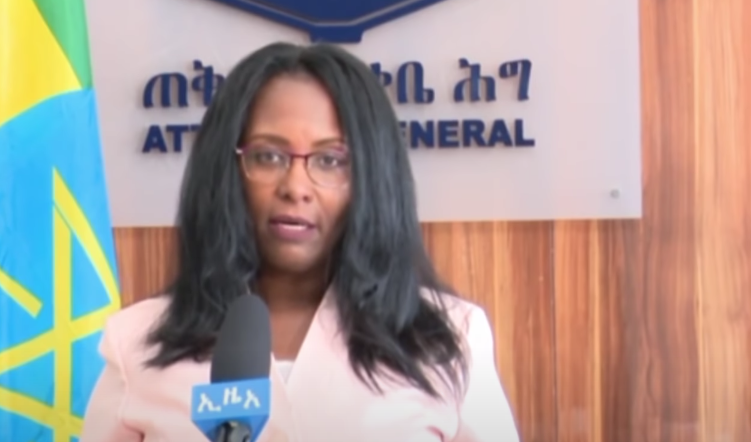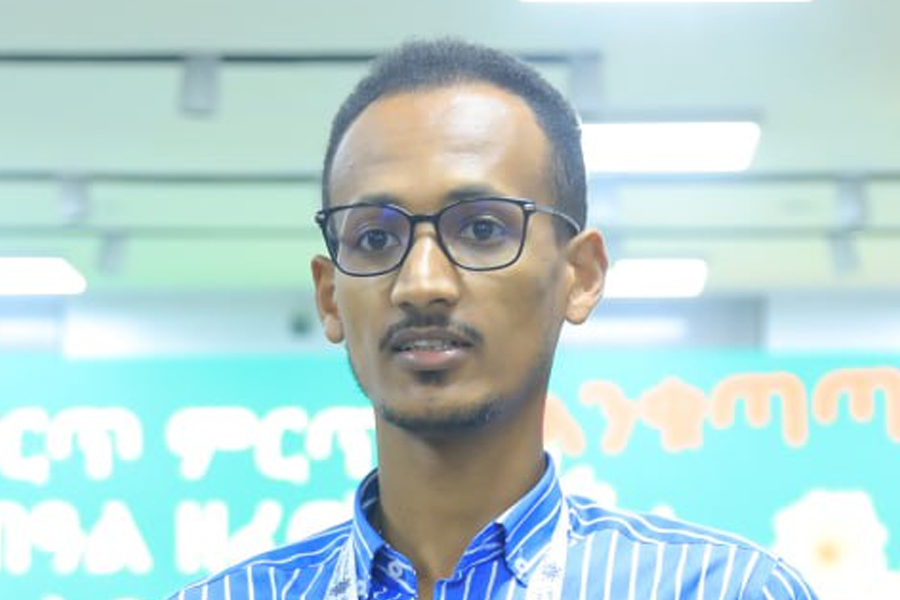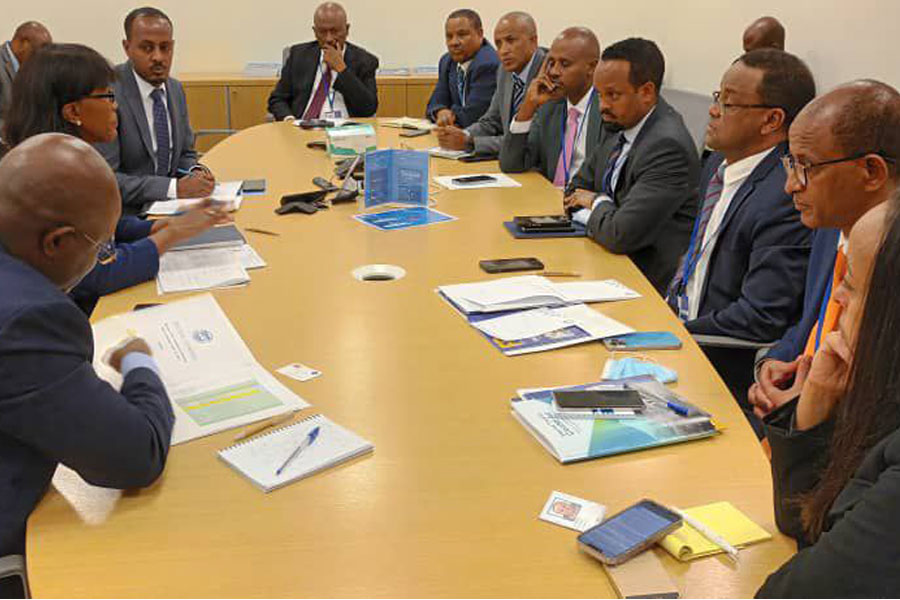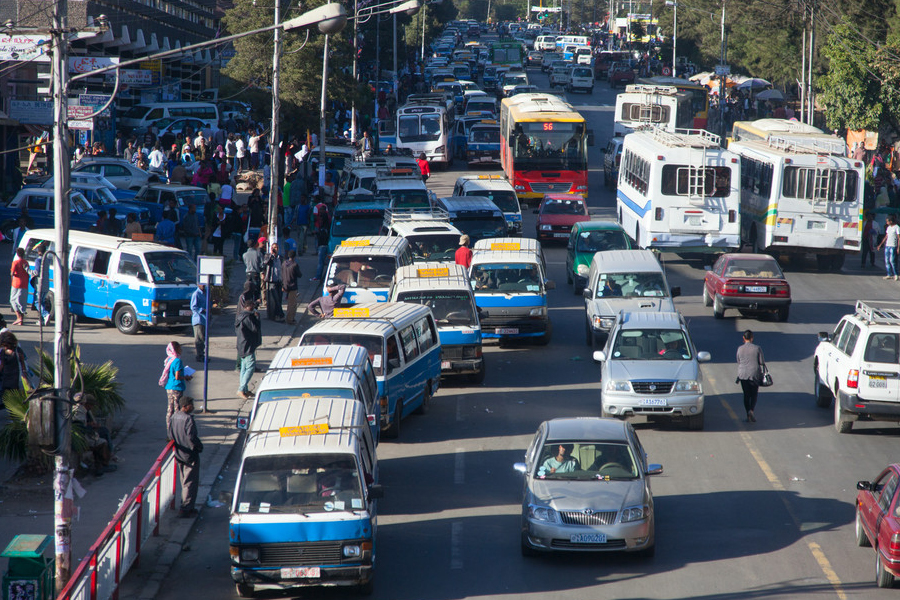
Apr 12 , 2020
By GELILA SAMUEL ( FORTUNE STAFF WRITER
)
 Restaurants and hotels cannot allow more than three people to sit at a table, people cannot cross borders without getting approval from the Council of Ministers, and all public transport providers are required to cut loading capacity by half, according to the new decree.
Restaurants and hotels cannot allow more than three people to sit at a table, people cannot cross borders without getting approval from the Council of Ministers, and all public transport providers are required to cut loading capacity by half, according to the new decree. The Council of Ministers has approved a regulation that outlaws handshakes and obligates the use of face masks in public places. Non-compliance could be punished with up to three years in jail or a fine of up to 200,000 Br.
The regulation comes into effect a day after parliament legislated the emergency decree, but the country was in the dark as to the details of the decree until an announcement was made on the evening of April 11, 2020.
The regulation outlaws gatherings of over four people, sports activities, visiting prisoners, attending funerals, operating a bar or movie business, increasing rental fees, evicting renters, and laying off employees of private companies without following the procedures of the Labour Ministry. Mass religious and social gatherings, as well as large political and government functions, are also on the long list of banned activities in the regulations.
Restaurants and hotels cannot allow more than three people to sit at a table, people cannot cross borders without getting approval from the Council of Ministers, and all public transport providers are required to cut loading capacity by half, according to the new decree.
A ministerial committee or a government body delegated by the committee can compel businesses to make their premises available for the use of virus tracking and isolation, according to the regulation. The committee can also compel businesses to provide service or manufacture products that help the country to contain the spread of the virus.
Accordingly, any person who violates the suspension of rights and fails to comply with the obligations will face three years imprisonment or a fine of no less than 1,000 Br and not exceeding 200,000 Br.
Mesfin Negash, a journalist and political commentator, described the state of emergency as ''detailed, aggressive, stringent."
"Enforcing it will be a challenge, the human and economic impact painful," he tweeted. "We really need to support the effort to shorten this nightmare. It’ll be an excruciating walk, but we’ll prevail."
The Council first announced the decree on April 8, two days before the parliament's legislation. For unknown reasons, the MPs discussed and approved the bill without televising the session to the public. The parliament, which is in its last term, has ratified the state of emergency that will be in place for five months with 390 MPs present. Adhana Haile (PhD), member of the parliament and TPLF, chose to abstain.
"It’s not that I don’t recognize the need for the decree," he said, "but I have my personal reservations on the content, as it is too generic. Looking at the very nature of the virus, the adversity of the pandemic can be contained within the next three months before summer ends."
If it can’t be contained within this period, then the executive body can extend the time, according to him.
"It isn’t convincing to impose the order for this long from the get-go unless there is a political agenda behind it, that is why I refrained from voting,” he said.
So far, Tigray Regional Administration is the only regional state that has declared a state of emergency limiting social gatherings, including weddings, and ordered the closure of all cafes and restaurants, while some regional administrations have limited intraregional and interegional movement.
Any federal or regional law, procedure or decision that is in contravention with the state of emergency proclamation has no effect, according to the proclamation itself.
“This specific stipulation has overrun the power of the regional administrations,” said Adhana. “The power of the regional administrations are brushed off completely. As long as the action by a regional administration doesn’t contradict the fight against the spread of the virus, they should be allowed to practice their authority."
“The Ministerial Committee that is poised to pass a decision on the suspension of rights and measures is another provision that’s utterly wrong, and I can’t agree with it,” he added. “Power division is between the lawmakers and the executive bodies, and the formation of a new body other than the Council of Ministers is wrong from the get-go."
To oversee the implementation of the decree, a seven-member State of Emergency Inquiry Board has been established. The Board has Peteros Weldesenbet and Tesfaye Daba as the chairperson and deputy chairperson, respectively, and has Fantaye Wondimu, Shkuri Mahri, Biruk Lapeso, Momina Mohammed and Besheda Gemechu as members.
During the session, the MPs did not raise questions regarding the upcoming election, according to Adhana.
“Perhaps raising the question about the election in times like this might look shallow; but after we pass through the worst times, we might see the death of politics if we let this happen now, in my personal opinion,” he said.
"As a community in this country, we can't compromise survival with the nature of law by citing articles in the Constitution," said Yonas Ashine, lecturer at Addis Abeba University's School of Poltical Science & International Relations.
"The state has to take more power to moblise resources and address a coordinated effort to fight the pandemic at all cost. What we seem to miss here is that if things get dire with lenient regulations and people lives are lost, then what's the point of the Constitution," he added.
In this kind of existential crisis, it's not about the nature of the law but rather the spirit of the law that keeps intact the survival of the political community, as well as the security and territorial integrity of the country. The law is giving power to the nation, hence, we have to underline this, according to the expert.
PUBLISHED ON
Apr 12,2020 [ VOL
21 , NO
1041]

Radar | Dec 21,2019

Viewpoints | Nov 30,2019

Commentaries | Aug 16,2020

Radar | May 02,2020

Radar | Aug 16,2020

Fortune News | Sep 14,2024

Agenda | Oct 15,2022

View From Arada | Feb 01,2020

Radar |

Fortune News | Sep 22,2024

Dec 22 , 2024 . By TIZITA SHEWAFERAW
Charged with transforming colossal state-owned enterprises into modern and competitiv...

Aug 18 , 2024 . By AKSAH ITALO
Although predictable Yonas Zerihun's job in the ride-hailing service is not immune to...

Jul 28 , 2024 . By TIZITA SHEWAFERAW
Unhabitual, perhaps too many, Samuel Gebreyohannes, 38, used to occasionally enjoy a couple of beers at breakfast. However, he recently swit...

Jul 13 , 2024 . By AKSAH ITALO
Investors who rely on tractors, trucks, and field vehicles for commuting, transporting commodities, and f...

Oct 18 , 2025
The political establishment, notably the ruling party and its top brass, has become p...

Oct 11 , 2025
Ladislas Farago, a roving Associated Press (AP) correspondent, arrived in Ethiopia in...

Oct 4 , 2025
Eyob Tekalegn (PhD) had been in the Governor's chair for only weeks when, on Septembe...

Sep 27 , 2025
Four years into an experiment with “shock therapy” in education, the national moo...